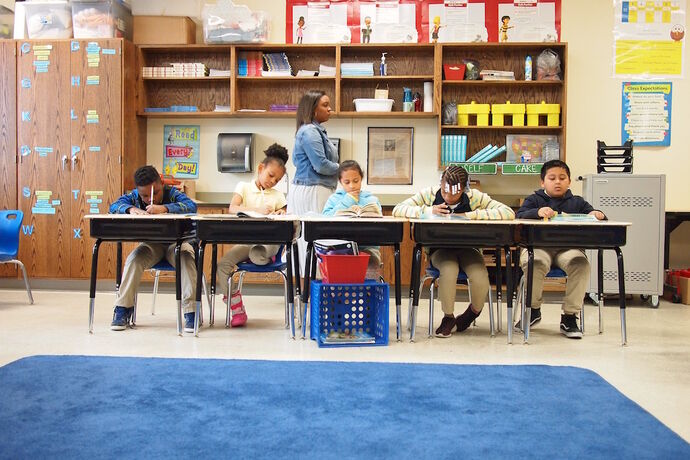Charlotte-Piedmont Triad

About Us
Our corps members and alumni leaders are transforming education across the Charlotte and Piedmont Triad regions. Since launching our Charlotte corps in 2004 and expanding to the Piedmont Triad in 2014, we have built a powerful network of educators and leaders.
Our corps members serve as dedicated educators in Charlotte-Mecklenburg Schools and Guilford County Schools, two of North Carolina's largest school districts. In Charlotte-Mecklenburg Schools, corps members teach in elementary, middle, and high schools across the district. In Charlotte-Mecklenburg Schools and Guilford County Schools, our educators have made significant contributions, with corps members regularly recognized for their teaching excellence.
Our commitment to educational excellence extends beyond the classroom. Alumni from both school districts have advanced into leadership roles as principals, assistant principals, and district administrators. Inspired by their classroom experiences, our alumni are leading transformational change in multiple sectors. They serve as school leaders, shape education policy, found advocacy organizations, and develop innovative businesses.
“One thing that I will always remember is that Teach For America taught me that before a student will learn from you, they must believe that you care for them. In addition to that philosophy, what I learned taught me that this work is bigger than what happens in the four walls of a classroom. Each student has a voice, a story, and a dream.”
Our Community
Charlotte-Piedmont Triad continues to expand our impact by cultivating models of excellence at both school and classroom levels while activating the collective leadership of our network. We create opportunities for our community to learn, innovate, and take action together.

Charlotte
Charlotte is North Carolina's largest city and a major financial hub, home to the headquarters of Bank of America and Wells Fargo's East Coast operations. The city offers a thriving arts scene with world-class museums, vibrant murals throughout its neighborhoods, and regular gallery crawls.

Piedmont Triad
The Piedmont Triad, encompassing Greensboro, Winston-Salem, and High Point, has emerged as a dynamic hub for innovation, social entrepreneurship, and higher education. Home to prestigious institutions like Wake Forest University, UNC Greensboro, and NC A&T State University, the region offers rich cultural amenities, a growing tech sector, and an exceptionally affordable cost of living. The area's central location provides easy access to major East Coast cities while maintaining a strong sense of community and quality of life.

Changemakers wanted.

“The work does not stop simply because I have become an alumnae of Teach for America. My purpose and passion continue to grow, and I am now equipped with more experience, greater exposure, and enhanced tools to keep pushing forward.”

Support Our Work
Your generosity helps build a future in which all children in Charlotte-Piedmont Triad can learn, lead, and thrive.


